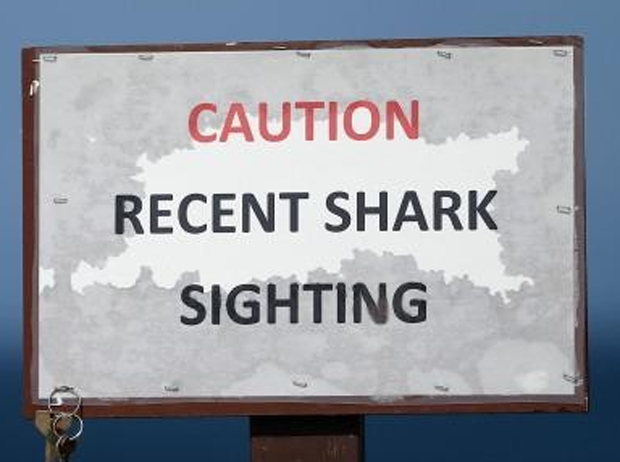 The public’s evolving relationship with sharks has long included wrangling and killing for sport. This may be the last summer such behavior is applauded
The public’s evolving relationship with sharks has long included wrangling and killing for sport. This may be the last summer such behavior is applauded
By Svati Kirsten Narula / July, 2013
[dropcap]D[/dropcap]iscovery Channel’s Shark Week, usually the primary excuse for shark-related news content each year, has been upstaged.
Last week, Elliot Sudal became an overnight celebrity after spending 45 minutes wrestling a shark out of the water and onto the beach in Nantucket. Sudal’s stunt drew some criticism from activists who argue that the 200-pound sand shark he wrestled faced a reduced chance of survival after the encounter. But in the context of traditional shark-human interaction, and particularly of other shark-human contests being debated this summer, the video actually conveyed something positive: that a shark fight can be entertaining even if both parties come out alive.
Sudal is an experienced fisherman and a conservationist; he has a degree in environmental science and biology, and he’s not interested in eating or killing sharks – he just likes wrestling with them. “Especially the big ones, the big females, those are the ones you want to keep alive,” he says, because the largest sharks are often females at the height of their reproductive capacity. Sharks don’t even taste that good, says Sudal, who once tried a black tip shark in Florida, where he does most of his fishing. “I could just go and catch a striped bass, which is much more delicious.” He enjoys catching sharks because “it’s like the pinnacle of big game fishing. It’s an intense, exciting battle, and it’s cool to see the sharks and see what’s out there. I’ve been fishing all my life and there’s a lot of work that goes into it and a whole culture behind it that I enjoy.”
“Obviously,” he says, “it’s not the best thing in the world for a shark, but, I let ’em go, I try to be as careful as possible, I only have them out of the water for thirty seconds to a minute. I mean, they’re sharks – they’re pretty tough! Even NOAA has a shark tagging program that emphasizes catch and release. I feel like catch-and-release shark fishing isn’t the worst thing ever.”
“Catch and release,” in fact, is a hot topic in shark sport these days, which previously has been much bloodier than Sudal’s one-man match.
The sport of shark fishing has its roots in Montauk, where charter-boat captain Frank Mundus harpooned great whites in the 1950s, coined the term “monster fishing,” and reportedly inspired the character Quint in Peter Benchley’s Jaws. In the decades since, Montauk has been a hub for traditional shark fishing tournaments that draw crowds of anglers and spectators. Finding the sharks in the ocean isn’t the crux of this sport. It’s fairly easy to attract sharks from late May to July in the Northeast by chumming. The fun, according to enthusiasts, comes from hauling a shark in once hooked — an affair that can last over an hour. The competitions offer cash prizes, by the pound, to those who bring in the biggest fishes — typically 300-plus-pound Mako and Thresher sharks. Historically, the only way the general public has been able to take part in these events is by ogling at the sharks that get strung up and weighed onshore at the end of the day.
Click here to read complete story […]
[information]
Tournament begins tomorrow @ Montauk Marine Basin, 426 West Lake Dr., PO Box 610, Montauk, NY 11954
631-668-5900 or Fax: 631-668-5659
E-mail: dockmaster@marinebasin.com
[/information]







